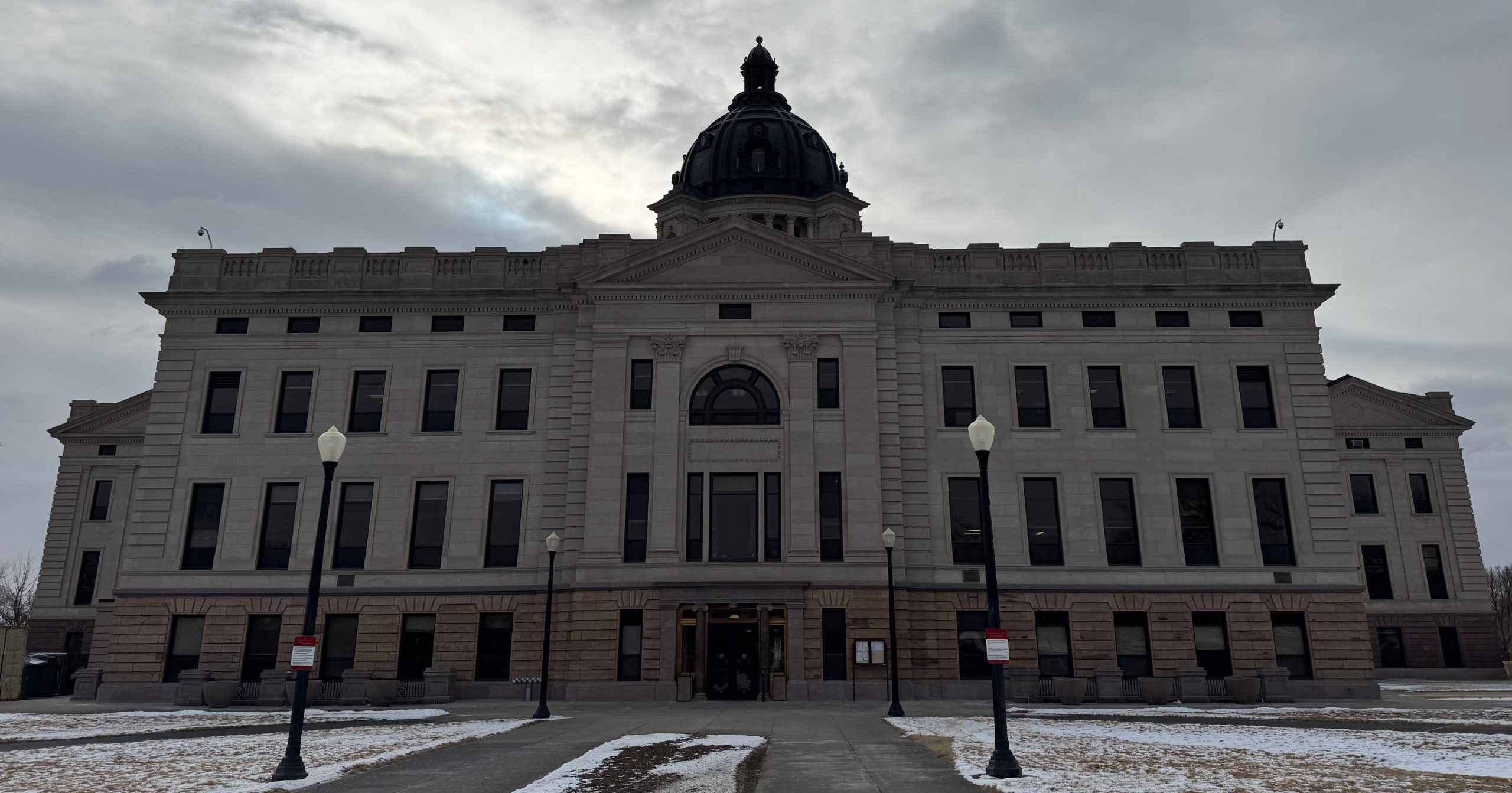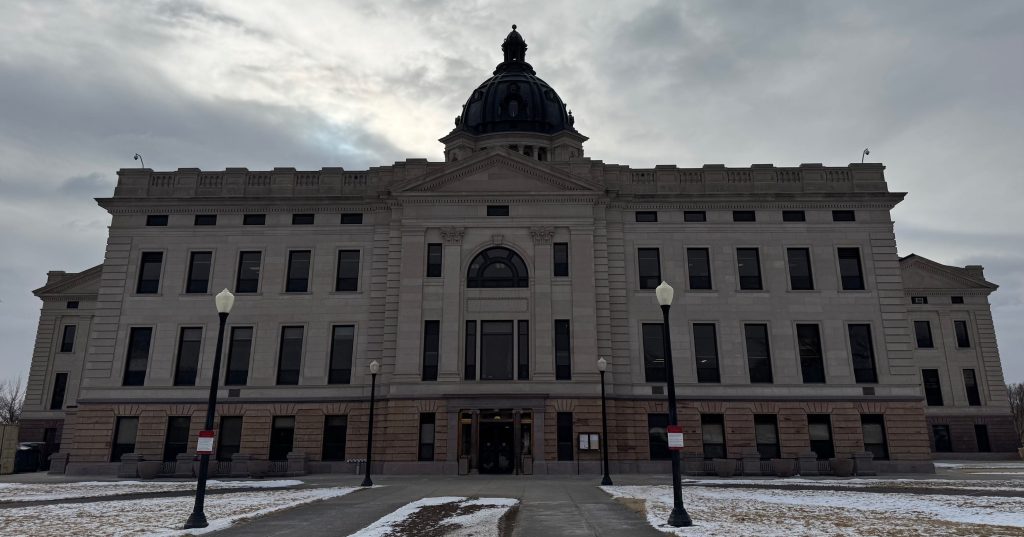Eminent domain, education, property taxes have attention of Republican leadership
PIERRE , S.D. — A year full of decisive electoral victories in South Dakota has come to a close.
Now, for the conservative lawmakers who rode a wave of anti-carbon pipeline populism into the state Capitol, it’s time to govern.
With the 100th state legislative session beginning on Tuesday, Jan. 14, these newly empowered conservatives say they are wasting no time setting their priorities and working to align those with their caucus members.
Central to their agenda is a slate of proposals aimed at addressing the issues that underscored their rise to power, namely eminent domain reform — intended in part to limit the construction of a proposed carbon capture pipeline through eastern South Dakota.
In November, voters soundly defeated Referred Law 21, a referendum on Senate Bill 201 from the 2024 session. Billed as a compromise by supporters, the measure was intended to give Summit Carbon Solution a clearer path forward to construct its pipeline. The purpose of the pipeline is to capture carbon emitted in regional ethanol plants and transport it to North Dakota for underground burial, an effort to make ethanol more carbon neutral in a world where some blame carbon for climate change.
RL 21, along with five other ballot initiatives covering an array of topics from expanding abortion access to legalizing recreational cannabis, were shot down by voters.
“I am excited and hopeful,” said House Majority Leader Scott Odenbach of Lawrence County, one of many new faces occupying leadership positions after the November caucus elections. “I think the results of the elections in June and November were good for the future of South Dakota and for the kind of policies that I generally support.”
But legislative leadership doesn’t just have their eyes on eminent domain reform. Odenbach says that relieving residents of rising property tax burdens, educational reform à la Gov. Kristi Noem’s proposal to create educational savings accounts, election integrity, government transparency and accountability, and reforms to the ballot initiative process will all be part of a quick-moving session. Leadership expects overall proposed bill totals will be higher than average this year.
“I can read the tea leaves and see where the people want to go,” added Assistant House Majority Leader Marty Overweg, referring to 2024’s election results. “But with great power comes great responsibility.”
In the House, it’s the largest partisan caucus in Pierre since 1952, the Spearfish lawmaker said. 64 Republican members — 32 in the Senate — bring a diverse set of beliefs and opinions to the Capitol’s conversations.
That factionalism has defined biannual primary races, where prospective Republican candidates are oftentimes deemed insufficiently conservative in their pursuit of Pierre.
Odenbach’s no stranger to those wars of words. Through his Liberty Tree PAC, he and his lieutenants orchestrated a shocking primary election night, defeating about a dozen incumbent lawmakers in June — and reshaping the Republican caucus in the process. This sweeping victory paved the way for Odenbach and his supporters to ascend to their new leadership roles, not unlike the path taken during previous power shifts in Pierre.
“I have been incessant ever since I got into the Legislature in 2021 that conservative governance is right, it’s the right and best way forward for the state,” Odenbach added, noting his admiration for the philosophies of current Republican executives like Florida Gov. Ron DeSantis and Virginia Gov. Glenn Youngkin. “It can, will and should be done without any sort of stigma from the past with name calling or ill-thought-out pieces of legislation.”
Senate President Pro Tempore Chris Karr concurs in the House’s calls for unity. A first-term senator who made his name in the House as an appropriator, he says he’s talked almost daily with his fellow members of leadership, to evaluate and re-evaluate priorities and discuss processes.
Some of those leadership conversations have involved Lt. Gov. Larry Rhoden, who is expected to take over before the end of January for the Trump administration-bound Noem. All members of leadership who spoke with The Dakota Scout expressed excitement about Rhoden’s taking over of the second floor of the Capitol — and a belief that his agenda for the 2025 session would not look too different from the one offered by his predecessor.
“I try to go into session each year open-minded, and respectful of others,” Karr said. “I treat everyone exactly the same. You have to lead by examples and expect those things in return. Hopefully, the professional conduct will be contagious, and people will see we have a great way of doing things.”
But with promises to deliver on key issues resting in the balance, the incoming team of leadership is eager to prove not just that it can win, but can govern effectively, too, for 38 days.
“We have to prove we can get stuff done,” Overweg said. “When Republicans controlled both branches of government during the Bush administration and they got nothing done, voters showed their disproval the next time they went to the polls. We will have the same thing here… It is time to put the rubber to the road.”














